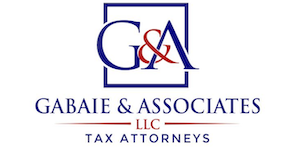Many employers across the country are responsible for withholding certain taxes from employee compensation and sending those funds to the IRS. The Internal Revenue Service (IRS) has the authority to impose penalties, issue liens, and even seize property if you fail to turn over these funds which have been entrusted to you. If you have received a notice from the IRS that it intends to assess a Trust Fund Recovery Penalty against you, it is important to speak with an attorney. Contact the experienced tax attorneys at Gabaie & Associates, LLC to learn about your rights and how to avoid harsh penalties.
Trust Fund Recovery Penalty
The Trust Fund Recovery Penalty allows the IRS to penalize anyone who is responsible for withholding, accounting, depositing, or paying certain payroll and employment taxes if they fail to turn those funds over to the agency. Specifically, the IRS has the authority to penalize any responsible party who willfully fails to execute their duties. The Penalty exists because employers are essentially entrusted to collect and hold an employee's taxes on behalf of the IRS. Congress empowered the IRS to take this action as a way to deter employees from taking these reserved funds for their own use.
Responsible Parties
The IRS can essentially assess a penalty against anyone who is considered “responsible” for the entrusted withholdings. This has been construed rather broadly and can apply to just about anyone who has the duty and power to direct the funds in some way. Individuals who may be considered responsible parties, and therefore subject to the Trust Fund Recovery Penalty, include:
- Officers and employees of corporations and partnerships;
- Sole proprietors;
- Board of Trustees members; and
- Certain third party agents.
As long as you have the (1) duty and (2) power to direct withholdings that have been entrusted to you or your organization, you will be considered to be a responsible party.
Willfully Failing to Direct Funds
The IRS can only assess a Trust Fund Recovery Penalty if you have willfully failed to send them the withholdings. You will be considered to act willfully if:
- You knew about the outstanding taxes due to the IRS and intentionally disregarded your obligation to disperse the funds to the agency, or
- You should have been aware of the outstanding taxes due to the agency and were indifferent to your obligations.
Willful conduct can exist when you act intentionally or extremely negligently. There is no requirement that you act with an illicit motive or bad intent. As long as you knew, or should have known, about the outstanding debt to the IRS and failed to act, you will be considered to have acted willfully.
Assessing the Trust Fund Recovery Penalty
When the IRS determines that you have failed to turn over taxes with which you have been entrusted it will send you a notice of their intent to impose the penalty. The penalty will generally be equal to the amount of the withholding plus interest. IRC 6672 applies to the employees' portion of employment tax; the withheld income tax and employee's portion of FICA. If you do not agree with the agency's decision to impose the penalty you have the 60 days to appeal their decision. If you do nothing, the agency will send you a Notice and Demand for Payment. At this time, the IRS has the authority to issue tax liens and levies to collect payment.
What to Do If You've Received Notice of Trust Fund Recovery Penalty
If you have received notice of an impending Trust Fund Recovery Penalty it is important to act quickly. You have 60 days to file an appeal in which you contest the agency's findings and/or propose an alternative resolution. Hiring an experienced tax attorney who is intimately familiar with the Trust Fund Recovery Penalty process will increase the chances of securing a positive outcome. Tax attorney Juda Gabaie can review your case and help to devise a strategy to resolve the situation. Call Gabaie & Associates, LLC today to schedule a free consultation and learn more about how we can help solve your tax issues.
